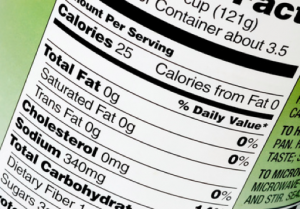Eating healthy is demanding work, and we often try many routes to get there. How do we know that we are doing the right things for our bodies? When surfing the internet, you would think there’s a huge debate over whether eggs, coffee, or salt are good or bad for you. Truthfully, most expert researchers have fairly solid opinions on issues like these and can also identify any shortcomings in the research. Why does the general public have so many misconceptions about diet and health issues? Where can we find nutrition information that is scientifically sound?
The diet and health industry is mostly to blame. Our population spends billions of dollars on diet products every year. It is natural to be attracted to the promises of these product. Without knowing, we fall for the marketing of half-truth statements said to be scientific. The diet industry flourishes with this kind of marketing that “sells” health. Food companies go so far as to set up “institutes” for health and wellness to claim their product as healthy.

The diet industry is not the sole source of misconception. Our dietary guidelines are written by the government, which is strongly influenced by corporation. Food industry groups, agricultural companies, and other businesses with a stake in making sure you eat the food they pack and sell will spend politically to ensure their products are recommended.
“Important aspects of these recommendations remain unproven, yet a dietary shift in this direction has already taken place even as overweight/obesity and diabetes have increased. Although appealing to an evidence-based methodology, the DGAC Report demonstrates several critical weaknesses, including use of an incomplete body of relevant science; inaccurately representing, interpreting, or summarizing the literature; and drawing conclusions and/or making recommendations that do not reflect the limitations or controversies in the science.” (Hite, 2010)
Lastly, the media and scientific communities do not communicate well. Epidemiology, studying the patterns and causes of disease, is extremely difficult to do, especially in the world of nutrition. It’s easy to see how the public can get mixed messages. Research results are notoriously unpredictable, and few of the total number of studies get published. Studies are more likely to be published if they show positive results. Food and supplement manufacturers can keep funding trials until one gets published.

Research that you hear about could be a small study designed to address a specific angle to a much larger problem. This is where media sources are at fault. Preliminary results published and popularized as cure-alls and studies done with animals portrayed as future human cures make the public believe scientists are close to miracle cures. This kind of science reporting leads to a public perception of science and medicine that is often wrong.
At the end of the day, we must remember that we too are at fault. So, what can we do? Before following any diet recommendations, ask yourself these questions:
- Who is telling me this information?
- How do they know this information?
- After answering the first 2 questions, is it possible that they are wrong?
- If yes, find another source. Peer review articles would be best. Try using “google scholar.”
-Catie Doucette, Nutrition Health Coach
SOURCES:
Henry, A. (2014, May 12). Why There’s So Much Confusion Over Health and Nutrition. Retrieved from https://lifehacker.com/why-theres-so-much-confusion-over-nutrition-and-fitness-1572870867
Hite, A. H., Feinman, R. D., Guzman, G. E., Satin, M., Schoenfeld, P. A., & Wood, R. J. (2010, October). In the face of contradictory evidence: Report of the Dietary Guidelines for Americans Committee. Retrieved May 14, 2018, from https://www.ncbi.nlm.nih.gov/pubmed/20888548

